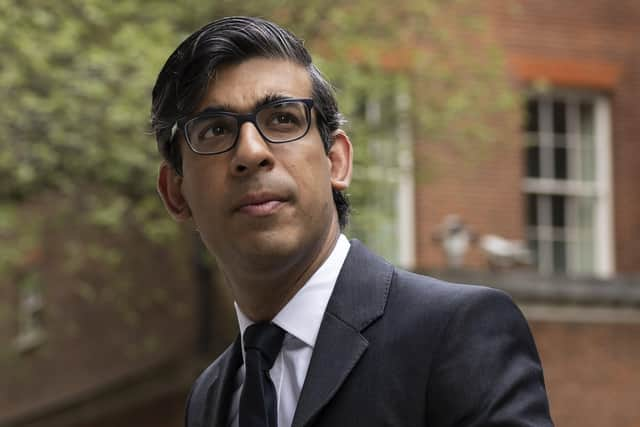Return to offices and end of home working is key if young people are to advance careers – Jayne Dowle
Now that it is deemed safe to go back to the office, remote working should not become the norm, said the Chancellor during an interview with networking organisation LinkedIn.
The message was clear. Sitting at home in your pyjamas gets you nowhere. Being in the workplace, he added, enabled him to build “strong relationships” with his early mentors, some of whom he still speaks to today. “That’s why I think, for young people in particular, being able to physically be in an office is valuable.”
Advertisement
Hide AdAdvertisement
Hide AdAnd he should know. The young Rishi took his first steps into the world of work as a waiter in a Southampton curry restaurant. Later, he enjoyed a glittering career in City finance, before succeeding William Hague as Richmond’s MP in 2015.


I’ll put my cards on the table. I’ve worked from home for almost 20 years now, but I made that decision when my children were small. And for half this time, I juggled homeworking with teaching in a university.
I’ve also had a number of short-term contracts where I’ve spent time in an office or other co-working environment, including a gallery and a museum.
Working from home suits my circumstances – especially as I now have a dog to look after and my husband leaves the house at 7am – but at least three times a week I yearn for the cut and thrust of office politics, the banter, the jokes and the sheer buzz of bouncing off other people. It’s lonely, a lot of the time.
Advertisement
Hide AdAdvertisement
Hide AdLike Mr Sunak, I still keep in contact with people from my very first job in journalism. I’m sure our valuable relationships wouldn’t have stood the test of time without the bonding experiences we shared.


And what if you don’t have a choice? Many friends in frontline services and teaching, for instance, have been compelled to clock on whatever the circumstances during the pandemic. Those people fretting about whether it’s safe to return to work should perhaps speak to a paramedic or a police officer about their experience of the last 18 months.
Still, I remember the days when ‘home working’ was looked down upon as the last resort of the semi-skilled and barely committed. I became used to the pitying looks from contacts and remote colleagues.
The pandemic changed all that, obviously. Zoom calls replaced in-person meetings and suddenly millions of people had the freedom to set their own hours and work in their pyjamas if they so wished.
Advertisement
Hide AdAdvertisement
Hide AdIt worked, if you excuse the pun. A recent YouGov study found that 47 per cent of adults think businesses shouldn’t be encouraging staff to return to the office.
However, it’s twice as hard, and I speak from experience, to make your mark – and keep making your mark – when you’re sitting at home.
I say this to my 18-year-old son, Jack, who is trying to lay down the basis of his dream career in sports broadcasting. He’s applying for internships and so on, but the pandemic came at a crucial time for him and his college classmates.
Like hundreds of thousands of UK students, they spent the last months of their course studying remotely, sitting in the bedrooms in front of a screen.